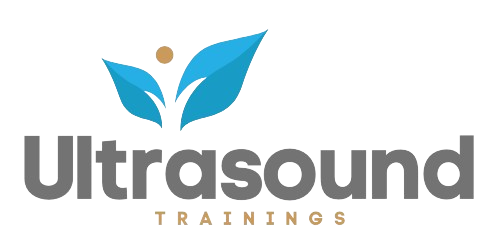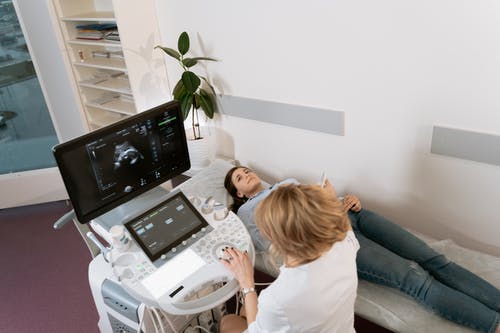Investing in an ultrasound training course is a significant step toward advancing your career in the healthcare field. Whether you’re a beginner looking to enter the field of medical imaging or an experienced professional seeking to specialize in a new area, it’s essential to choose the right course for your needs. However, with so many options available, it can be challenging to determine which course will offer the best value, quality, and fit for your career goals.
To help you make an informed decision, here are 7 key things you should know before purchasing an ultrasound training course.
1. Accreditation Matters: Make Sure the Course Is Recognized
One of the most important factors to consider when choosing an ultrasound training course is accreditation. An accredited course ensures that the curriculum meets established standards of quality and that your training will be recognized by professional certification bodies and employers.
When selecting a course, look for accreditation from well-respected organizations, such as:
- The American Registry for Diagnostic Medical Sonography (ARDMS)
- The Commission on Accreditation of Allied Health Education Programs (CAAHEP)
Courses that are accredited by these bodies are trusted in the industry and ensure that you receive the proper training and qualifications required for future employment and certification.
2. Determine Your Career Goals and Specialization
Before enrolling in an ultrasound course, it’s crucial to identify your specific career goals and the type of ultrasound specialization you’re interested in pursuing. Ultrasound imaging offers various career paths, each with its own set of skills and training requirements.
Some popular ultrasound specializations include:
- Obstetric and Gynecologic Ultrasound: focused on pregnancy and female reproductive health.
- Cardiac Ultrasound (Echocardiography): Involves imaging the heart and cardiovascular system.
- Vascular Ultrasound: focuses on the blood vessels and the detection of blockages or blood clots.
- Musculoskeletal Ultrasound: Used for imaging joints, muscles, and soft tissue.
Identifying your area of interest early on will help you choose the right course that aligns with your professional aspirations.
3. Course Format: Online, In-Person, or Hybrid?
Ultrasound training courses can come in different formats: online, in-person, or hybrid (a combination of both). Understanding the pros and cons of each format will help you select the one that fits your schedule, learning preferences, and needs.
- Online courses offer maximum flexibility, allowing you to study at your own pace from anywhere. These are ideal for working professionals or those who need flexibility in their training schedule. However, practical hands-on experience may be limited in fully online courses.
- In-person courses: Provide hands-on training with real ultrasound equipment in a classroom or clinical setting. This format is ideal for students who prefer direct interaction with instructors and peers but may require a significant time commitment and commuting.
- Hybrid Courses: Combine online theory modules with in-person labs or clinical rotations. This format offers a balance between flexibility and hands-on training, making it a popular choice for many students.
Consider your situation and how much time and flexibility you need when choosing between these options.
4. Hands-On Training Is Crucial
Ultrasound is a highly technical skill, and while theory is important, hands-on experience is crucial to becoming a competent ultrasound technician. When choosing a course, ensure that it includes practical training with ultrasound machines, whether in a lab setting or during clinical rotations.
Some courses may require you to complete a certain number of clinical hours in a healthcare facility. Make sure the course you choose provides adequate hands-on practice to help you build confidence and competence in performing ultrasound scans.
5. Course Duration and Study Commitment
Ultrasound training courses can vary significantly in length, depending on the depth and complexity of the material covered. Shorter courses may be ideal for professionals looking to update their skills or specialize in a particular area, while longer courses may be required for beginners or those seeking more comprehensive training.
Common course durations include:
- Short-term courses (weeks to months): These are typically designed for professionals looking to upskill or specialize.
- Diploma programs (12-18 months): Offer more in-depth knowledge and hands-on training.
- Degree programs (2-4 years): Provide comprehensive education in diagnostic medical sonography and prepare students for certification exams.
Be sure to check the course outline and duration to understand how much time and effort will be required to complete the program successfully.
6. Instructor Expertise and Support
The quality of your training will heavily depend on the expertise and teaching skills of the instructors. Research the instructors involved in the program to ensure that they are experienced ultrasound technicians or sonographers with a strong background in both practical skills and teaching.
Additionally, inquire about the level of student support available during the course. A good program should offer access to instructors, mentoring, or tutoring services if needed, as well as support for navigating any technical issues in online learning.
7. Cost and Financial Aid Options
Cost is always a major consideration when enrolling in any educational program. Ultrasound training courses can vary widely in price, depending on factors such as the institution, the length of the program, and the format (online vs. in-person).
When evaluating costs, be sure to consider:
- Tuition fees: Is the total cost of the program within your budget?
- Additional costs: Are there extra fees for textbooks, lab equipment, or certification exams?
- Financial aid: Does the program offer scholarships, grants, or payment plans?
It’s important to assess the overall value of the course with its cost, especially if you’re on a tight budget or need to finance your education.
Bonus Tip: Certification Prep and Job Placement Assistance
Many ultrasound training programs offer support beyond the classroom. Look for courses that provide certification exam preparation to help you pass essential certification exams like those administered by the ARDMS. In addition, some programs may offer job placement assistance, helping you transition smoothly into the workforce after completing your training.
Conclusion
Choosing the right ultrasound training course is a major decision that can have a lasting impact on your career. By considering factors such as accreditation, specialization, course format, hands-on training, and cost, you can ensure that you invest in a program that aligns with your professional goals and sets you up for success.


